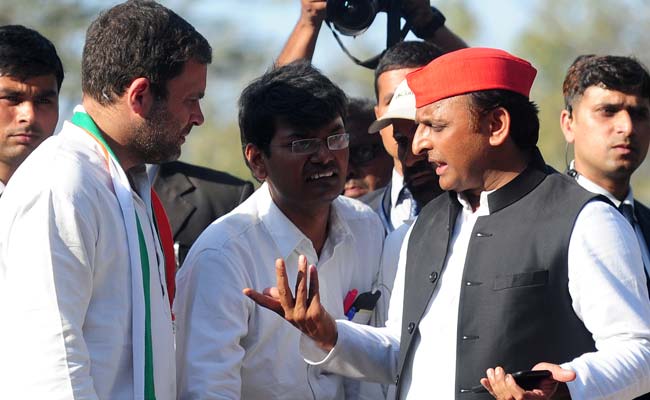There has been a consolidation of the Hindu vote too, driven by a perceived feeling of being ignored and being made second-class citizens in their own country despite being the majority by political parties who felt their salvation lay in wooing the Muslim Vote. Their false narrative of secularism is now largely being seen all over India as being anti-Hindu, a fact which AK Antony acknowledged in his report on the failures of the Congress in the 2014 elections. Overall, a refreshing change, overcoming stale-old narratives and seeking new ones based on growth and development.
For all political parties in India, the message is clear: create a new narrative based on the aspiration of citizens, with the youth being the majority, if you want to be politically relevant. The old tired ideas of caste, socialism, povertarian policies, false securalism, anti-Hindu tirade, minority appeasement and divide and rule social combinations no longer sell. The Left has already fallen by the wayside, consigned to the dustbins of history, the Congress in terminal decline in a world of its own, the regional parties grasping for new thoughts to regain their power. India's youthful electorates want growth, development and jobs. Election 2019 is near and unless they change, their future is bleak.

The BJP rode a Modi super-wave to a massive victory in Uttar Pradesh, winning 312 of the state's 403 seats; its allies getting 13 seats for a grand total of 325
The media from Delhi once again created a negative narrative in their own image, reflecting their own biases and prejudices. They openly showed their hostility to the NDA and PM Modi. Instead of being objective and reporting on the change on the ground, they projected their own prejudiced views as that of the electorate. They were playing up the demonetization issue, as if people were angry and upset, forgetting that the poor saw it as a blow against the cronies and black marketeers and corrupt contractors. Yes, the poor suffered, but the poor were happy that the corrupt were hit more! Vicarious pleasure at the slights they had suffered for long- and in PM Modi, they saw their champion. The BPL LPG scheme seems to be a big hit for women. Once again, the Delhi Media, consumed by their own hatred for the BJP, missed the biggest shift in political preferences in India.

The Samajwadi-Congress combine came to be etched too firmly in voters' minds as narrowly focused on the Muslims and the Yadavs
After the victory, PM Modi spoke about a "New India" built on high aspirations, where the youth, women and the poor have hope of change, of jobs, of growth and development. With over 21 crore citizens, over 17% of our population, UP certainly has clout in our economy and in politics. In politics, they have shown their huge power, voting the BJP to power both at the centre and in the state. In economic terms, UP, over the last 10 years, has grown at a rate lower than the All-India growth rate, dragging the overall rate down. It now needs a new economic agenda, a big vision and bold leadership to make it an engine of growth for India. For PM Modi, this is certainly a vote of full confidence, possibly emboldening him for more radical reforms for India. Fiscal 2017-18 promises to be a year of growth and jobs, possibly showing the benefits of massive investments in the last 2.5 years.
Overall, UP is rich in water and fertile land. It can be the agricultural basket of India, growing enough to feed the entire country. It lacks infrastructure, urban centres, industries and good universities. The new government needs to show growth and jobs by 2019 to keep the momentum if the BJP wants to come back to power in 2019. The BJP has made the right statements that as the elections are over, they will work for the benefit of all.

PM Narendra Modi campaigned extensively for the Uttar Pradesh assembly elections
UP suffers from an ineffective administration as the state is too large to be effectively governed: with over 21 crore citizens, as big as Brazil which has many states within. It needs adequate governance and social infrastructure. UP's governance infrastructure needs to be massively increased to ensure development. Education needs a massive push to create the human capital for this century. Tamil Nadu has clearly shown that it is human capital that is the greatest differentiator. A big challenge indeed for the new government. India can only grow if UP and Bihar grow at a faster pace than the rest.
(Mohandas Pai was the CFO and then the head of HR at Infosys. He is now Chairman, Aarin Capital Partners.)
Disclaimer: The opinions expressed within this article are the personal opinions of the author. The facts and opinions appearing in the article do not reflect the views of NDTV and NDTV does not assume any responsibility or liability for the same.
Disclosure: Mohandas Pai is an investor in NDTV Convergence's e-commerce venture, smartcooky.com


